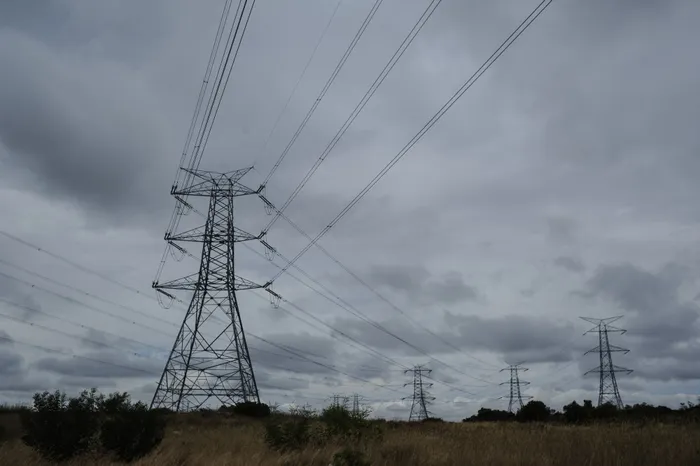
Cape Town - 181206 - Eskom power lines near the Ankerlig Open Gas Turbines. Energy poverty in Africa is estimated to cost the continent between 2 and 4% of gross domestic product a year. Picture: Henk Kruger/African News Agency (ANA) Cape Town - 181206 - Eskom power lines near the Ankerlig Open Gas Turbines. Energy poverty in Africa is estimated to cost the continent between 2 and 4% of gross domestic product a year. Picture: Henk Kruger/African News Agency (ANA)
JOHANNESBURG - Energy poverty in Africa is estimated to cost the continent between 2 and 4percent of gross domestic product a year.
This is according to the African Development Bank (AfDB), which is leading the Desert to Power Initiative, aimed at developing and providing 10 gigawatt of solar energy by 2025 and supply 250million people with green electricity, including some of the world's poorest countries.
According to the bank, this will mean that at least 90million people will be connected to electricity for the first time, significantly lifting them out of energy poverty.
At least 64percent of the Sahel population (the zone of transition in Africa between the Sahara to the north and the Savanna in the north), covering Senegal, Nigeria, Mauritania, Mali, Burkina Faso, Niger, Chad, Sudan and Eritrea, lives without electricity, a major barrier to development.
The bank together with its partners hope to transform the region by harnessing solar energy.
Magdalena Seol, from the AfDB's Desert to Power Initiative said: “For Africa right now, providing and securing sustainable energy is the backbone of its economic growth. A lack of energy remains as a significant impediment to Africa's economic and social development.”
The project has been launched in collaboration with the Green Climate Fund, to support developing countries adapt to and mitigate climate change and is designed to combine private sector capital with blended finance.
In South Africa, the bank and its partner, the Climate Investment Fund, have helped fund the Sere Wind Farm, where 46 turbines supply 100 megawatt to the national power grid and expected to save 6million tons of greenhouse gases over its 20-year expected lifespan, supplying 124000 homes.
Webb Meko, a business development director for sub-Saharan Africa at Black & Veatch, said recently that the impact of not having electricity had far outweighed the cost of building new energy infrastructure and African governments needed to accelerate efforts to unlock economic opportunities in industrialisation, agriculture and small business development.